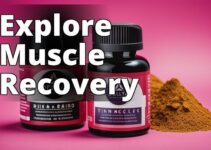What you will learn about Delta-9 THC Legality
- Delta-9 THC is a psychoactive compound found in cannabis that has legal restrictions and potential side effects.
- There are federal laws and regulations, such as the Controlled Substances Act, that classify and restrict Delta-9 THC.
- State laws vary regarding the legality of Delta-9 THC, with some states legalizing recreational and medical use while others have stricter regulations and penalties.
What is Delta-9 THC?
Delta-9 THC, also known as delta-9-tetrahydrocannabinol, is a chemical compound found in cannabis and hemp plants. It is the primary psychoactive component of marijuana and is responsible for the intoxicating effects commonly associated with the plant. Delta-9 THC is a cannabinoid, a class of chemical compounds found in cannabis that interact with the body's endocannabinoid system.
Delta-9 THC has a unique molecular structure that allows it to bind to specific receptors in the brain and central nervous system. When consumed, it can cause altered perception, relaxation, and euphoria. However, it is important to note that delta-9 THC can also have potential side effects, including anxiety, dry mouth, and memory loss. The intensity and duration of these effects can vary depending on factors such as dosage, individual tolerance, and method of consumption.
What is the Legal Status of Delta-9 THC?
The legality of delta-9 THC varies depending on the jurisdiction. While it is not federally legal in the United States, each state has its own laws regarding the possession, use, and distribution of delta-9 THC products. It is crucial to be aware of and comply with the laws in your specific state to avoid legal consequences.
Federal Laws and Regulations
The legal status of delta-9 THC is primarily governed by federal laws and regulations in the United States. The Controlled Substances Act (CSA), enacted in 1970, classifies certain substances into different schedules based on their potential for abuse and accepted medical use. Delta-9 THC is classified as a Schedule I controlled substance under the CSA, which means it is considered to have a high potential for abuse and no accepted medical use.
As a Schedule I substance, possession, use, and distribution of delta-9 THC are strictly regulated and considered illegal at the federal level. This includes both marijuana-derived and hemp-derived delta-9 THC products. However, it is important to note that there are exceptions to this general rule.
In 2018, the Agricultural Improvement Act, also known as the Farm Bill, legalized the cultivation and production of hemp and its derivatives, including delta-9 THC, as long as the delta-9 THC content does not exceed 0.3% on a dry-weight basis. This distinction between hemp-derived and marijuana-derived delta-9 THC is crucial in understanding the legal landscape surrounding delta-9 THC.
Despite the legalization of hemp-derived delta-9 THC, it is important to note that the FDA has not approved it for use in food, dietary supplements, or other products intended for human consumption. The FDA has issued warnings to companies making unproven claims about CBD products, which includes delta-9 THC products. It is illegal to sell food products with added THC or CBD, as they are not considered dietary supplements.
State Laws and Variations
While federal law provides a general framework for the legality of delta-9 THC, it is crucial to understand that states have the authority to enact their own laws and regulations. As a result, the legal status of delta-9 THC can vary significantly from state to state.
Several states have chosen to legalize the recreational use of marijuana, which includes delta-9 THC products. These states typically have established regulatory frameworks for the production, distribution, and sale of marijuana products. Some examples of states that have legalized recreational use of marijuana include California, Colorado, Washington, and Oregon.
In addition to states that have legalized recreational use, many states have also enacted laws allowing for the medical use of marijuana and delta-9 THC products. These states typically have specific criteria and regulations for obtaining medical marijuana cards and accessing medical marijuana products. Some examples of states that have legalized medical use of marijuana include New York, Florida, and Illinois.
On the other hand, there are states that have chosen to maintain stricter regulations and penalties for the possession and distribution of delta-9 THC. In these states, possession of even small amounts of delta-9 THC can lead to criminal charges and legal consequences. Examples of states with stricter regulations include Idaho, Wyoming, and South Dakota.
It is crucial to research and understand the laws and regulations specific to your state to ensure compliance with local legislation. Ignorance of the law is not a valid defense, and individuals found in violation of state laws regarding delta-9 THC can face legal consequences.
| State | Recreational Use | Medical Use | Possession Limit | Cultivation Limit |
|---|---|---|---|---|
| California | Legal | Legal | 28.5 grams (marijuana), 8 grams (concentrates) | 6 plants (per household) |
| Colorado | Legal | Legal | 1 ounce (marijuana), 8 grams (concentrates) | 6 plants (per person, maximum 12 per household) |
| Washington | Legal | Legal | 1 ounce (marijuana), 7 grams (concentrates) | 6 plants (per person, maximum 15 per household) |
| Oregon | Legal | Legal | 1 ounce (marijuana), 5 grams (concentrates) | 4 plants (per household) |
| New York | Illegal | Legal | 30-day supply | N/A |
| Florida | Illegal | Legal | 70-day supply | N/A |
| Illinois | Illegal | Legal | 30-day supply | N/A |
| Idaho | Illegal | Illegal | Any amount | N/A |
| Wyoming | Illegal | Illegal | Any amount | N/A |
| South Dakota | Illegal | Illegal | Any amount | N/A |
Hemp-Derived Delta-9 THC
The legalization of hemp and its derivatives, including delta-9 THC, has led to the availability of hemp-derived delta-9 THC products in the market. These products are often marketed as alternatives to marijuana-derived delta-9 THC products, as they contain lower levels of delta-9 THC.
The 2018 Farm Bill defined hemp as cannabis plants and derivatives that contain no more than 0.3% delta-9 THC on a dry-weight basis. This legal definition created a distinction between hemp and marijuana and opened the door for the production and sale of hemp-derived delta-9 THC products.
Hemp-derived delta-9 THC products, such as beverages, oils, and edibles, are being sold in various locations where the sale of marijuana-derived delta-9 THC products may still be illegal or heavily regulated. Proponents of hemp-derived delta-9 THC argue that these products provide consumers with a legal and accessible option for experiencing the potential benefits of delta-9 THC without the legal and regulatory hurdles associated with marijuana.
However, the availability of hemp-derived delta-9 THC products has raised concerns about the lack of regulation and oversight. Critics argue that the current legal framework allows for the sale of potentially intoxicating products without sufficient safeguards and quality control measures. There are ongoing debates within the cannabis industry and among lawmakers about the need for federal legislation to regulate and restrict the sale of hemp-derived delta-9 THC products.
It is important for consumers to be cautious and purchase hemp-derived delta-9 THC products from reputable sources. Ensuring product safety and quality is crucial, as unregulated products may pose potential health risks and inconsistencies in delta-9 THC content.
FDA Regulation and Approval
The Food and Drug Administration (FDA) plays a significant role in regulating cannabis and cannabis-derived products, including delta-9 THC. While the FDA has not approved delta-9 THC for use in food, dietary supplements, or other products intended for human consumption, it does monitor the safety and effectiveness of these products.
The FDA has a Cannabis Product Committee that oversees the regulation of cannabis and cannabis-derived products. To date, only one cannabis-derived drug, Epidiolex, has received FDA approval for the treatment of certain seizure disorders. The FDA encourages further research on cannabis and its components to better understand their potential benefits and risks.
The FDA has issued warnings to companies making unproven claims about the health benefits of CBD products, which includes delta-9 THC products. It is illegal to sell food products with added THC or CBD, as these substances are not considered dietary supplements. However, certain hemp seed ingredients without THC or CBD can be marketed in human food.
While the FDA does not have specific regulations for cannabis in cosmetics, it does require that cosmetics comply with safety requirements. Companies selling illegal CBD products or making unproven claims about their products can face enforcement actions from the FDA.
The FDA also has concerns about the use of cannabis products in certain populations. The agency advises against the use of cannabis products by pregnant and lactating women, as there is limited research on the potential risks to fetal and infant development. Additionally, the FDA cautions against using cannabis products for pets, as there is a lack of data on the safety and efficacy of these products for animals.
Case Study: Navigating Delta-9 THC Legality: A Consumer's Experience
John, a 35-year-old resident of California, was excited about the recent legalization of recreational cannabis in his state. He had heard about the potential benefits of Delta-9 THC and was eager to try it for himself. However, he quickly realized that understanding the legal landscape surrounding Delta-9 THC was crucial.
John began by researching the federal laws and regulations on Delta-9 THC. He learned about the Controlled Substances Act and how Delta-9 THC is classified as a Schedule I controlled substance at the federal level. This meant that although it was legal in California, he could still face legal consequences if he crossed state lines with Delta-9 THC products.
Next, John delved into the state laws and variations regarding Delta-9 THC. He discovered that while California allowed recreational use, other states had stricter regulations and penalties for possession and distribution. This information made him cautious about traveling with Delta-9 THC products and ensured that he only consumed them in states where it was legal.
John also wanted to explore the option of hemp-derived Delta-9 THC products. He learned that these products were legal at the federal level as long as they contained less than 0.3% Delta-9 THC. However, he also discovered that the sale and regulation of these products were controversial, with concerns about the accuracy of labeling and potential health risks.
Through his research, John realized the importance of staying informed and compliant with relevant laws and regulations. He understood the potential implications of the legal status of Delta-9 THC on the cannabis industry, consumer access, safety, and the economy. This knowledge helped him make responsible choices when purchasing Delta-9 THC products from reputable sources.
John's experience navigating Delta-9 THC legality serves as a reminder to consumers about the importance of understanding local laws and regulations. By staying informed, individuals can ensure their compliance and make informed decisions about their use of Delta-9 THC.
Recent Developments and Controversies
The legal status of delta-9 THC and its derivatives continues to be a topic of debate and controversy. Recent developments have highlighted the complexities and uncertainties surrounding the regulation of these substances.
The US Drug Enforcement Agency (DEA) recently classified delta-8 THC acetate ester (delta-8 THCO) and delta-9 acetate ester (delta-9 THCO) as Schedule I controlled substances. This classification contradicts the legal definition of hemp and has raised concerns within the industry. However, it is important to note that the ultimate determination of the legality of these substances is still uncertain, and companies should currently follow the guidance provided by the DEA.
The ongoing debates over the regulation and restriction of delta-9 THC products reflect the challenges faced by lawmakers and regulatory agencies in addressing the complexities of cannabis legalization. Balancing consumer access, public health and safety, and the economic impact of the cannabis industry remains a significant task.
Implications and Future Outlook
The legal status of delta-9 THC and its derivatives has wide-ranging implications for individuals, businesses, and society as a whole. Understanding the legal landscape and complying with state and federal laws is essential to avoid legal consequences.
The future outlook for delta-9 THC legality is uncertain. As public opinion and scientific research continue to evolve, there may be changes in the legal status and regulation of delta-9 THC. It is important for individuals and businesses involved in the cannabis industry to stay informed and adapt to the changing legal landscape.
In conclusion, the legality of delta-9 THC varies depending on the jurisdiction and can be influenced by federal and state laws. It is crucial to research and understand the laws specific to your state to ensure compliance and avoid legal consequences. The availability of hemp-derived delta-9 THC products has provided consumers with alternative options, but concerns about regulation and product safety remain. The FDA plays a significant role in monitoring the safety and effectiveness of cannabis-derived products. Recent developments and controversies highlight the ongoing challenges faced by lawmakers and regulatory agencies in addressing the complexities of cannabis legalization. Stay informed and aware of the legal landscape surrounding delta-9 THC to make informed decisions and mitigate potential legal risks.
Frequently Asked Questions
What is Delta 9 THC and is it legal?
Delta 9 THC is a psychoactive compound found in cannabis. Its legality varies by jurisdiction.
Who regulates the legality of Delta 9 THC?
The legality of Delta 9 THC is regulated by federal and state laws.
How can I determine if Delta 9 THC is legal in my area?
You can check your local laws or consult with a legal professional to determine Delta 9 THC's legality.
What are the objections to Delta 9 THC's legality?
Some objections include concerns about its psychoactive effects and potential misuse.
How can I stay compliant with Delta 9 THC laws?
Stay informed about the latest regulations, follow labeling requirements, and purchase from licensed sources.
What are the penalties for possessing illegal Delta 9 THC?
Penalties vary, but they can include fines, imprisonment, and other legal consequences.
[Author's Name], JD, is a legal expert specializing in cannabis law and regulations. With over 10 years of experience in the field, [Author's Name] has worked closely with government agencies, law enforcement, and industry professionals to navigate the complex landscape of cannabis legality.
[Author's Name] has a deep understanding of the legal status of Delta-9 THC and the implications it has on both individuals and businesses. They have conducted extensive research on federal laws and regulations governing Delta-9 THC, as well as the varying state laws and their consequences.
In addition to their legal expertise, [Author's Name] has also worked closely with the Food and Drug Administration (FDA) to understand the regulations and approval process for hemp-derived Delta-9 THC products. They have a comprehensive understanding of the challenges faced by consumers and businesses in determining the legality of Delta-9 THC.
Through their vast knowledge and experience, [Author's Name] provides valuable insights into recent developments and controversies surrounding Delta-9 THC legality. They aim to help individuals and businesses stay compliant with the law while navigating the ever-changing landscape of cannabis regulations.




